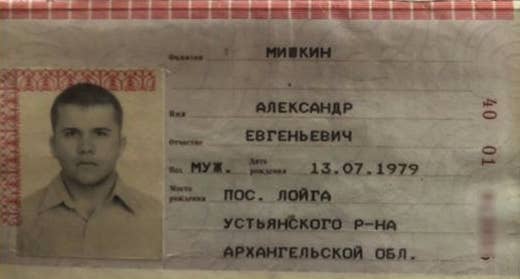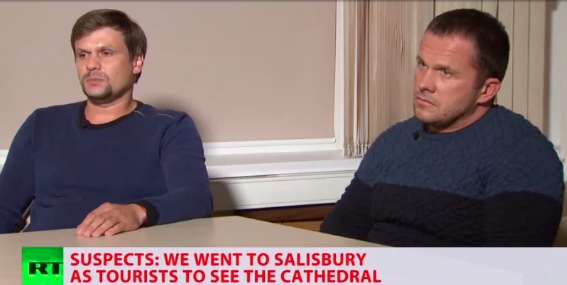
The second suspect accused by British authorities of poisoning former Russian spy Sergei Skripal and his daughter, Yulia, was a doctor working for the GRU military intelligence agency, investigative journalists have claimed.
The man who travelled to Salisbury using the alias Alexander Petrov in March was named by Bellingcat as Dr Alexander Yevgenyevich Mishkin, a military doctor who trained to work for the Russian navy before he was recruited by the GRU, and who was given a "Hero of Russia" award by President Vladimir Putin.
Bellingcat claims to have identified Mishkin, 39, using "multiple open sources", testimony from people who knew him, and copies of his identity documents. UK authorities have not disputed the findings.
The site said he was originally from Loyga, a village around 450 miles northeast of Moscow. He studied at the “S. Kirov” Military Medical Academy in St Petersburg and is understood to have moved to the capital and taken up the cover name "Alexander Petrov" sometime between 2007 and 2010.
Among the identity documents obtained by Bellingcat was a scanned copy of his passport, which included his real first and patronymic names, his date of birth and his parents' first names. His registered home address since 2014 was the GRU headquarters in Moscow.
The website says it used a range of methods to determine his identity, from browsing school photographs to searching the registration history of this vehicle.
The good doctor: Our full report on "Alexander Petrov" is up, and we daresay it's quite the read. https://t.co/ryZ0MNARnb
Its Russian reporting partner, The Insider, spoke to residents in Loyga who recognised "Alexander Petrov" as Mishkin, and some of whom said he had received the "Hero of Russia" award in recent years for an unknown reason. Villagers speculated it was "for Crimea or Yanukovich," according to Bellingcat.
"The same source told us that Alexander Mishkin’s grandmother possesses a photograph on which President Putin is bestowing the Gold Star medal (which goes with the award) to Alexander, and shakes his hand," Bellingcat reported.
"The source said the grandmother treasures this photo and does not show it to everyone, and never lets anyone else hold it. Our reporter was not able to talk directly to Petrov’s grandmother or see the photograph."
Mishkin is understood to have travelled to and from Ukraine on multiple ocassions between 2010 and 2013 using his alias.
The news comes less than two weeks after the investigative website identified the first of the two agents, who used the pseudonym Ruslan Borishov, as GRU Colonel Anatoliy Chepiga. Russia denied the claim.

The UK Crown Prosecution Service announced last month that there was enough evidence surrounding the nerve agent attack on March 4 to charge both men with conspiracy to murder and attempted murder.
In an interview with Russian state broadcaster RT just over a week later, the men claimed they had travelled to Wiltshire to visit Stonehenge and didn't realise they had gone near Skripal's home.

Last week it emerged that Russian military intelligence services tried to hack the Foreign Office, government chemical weapons laboratory Porton Down, and the Organisation for the Prohibition of Chemical Weapons (OPCW) in the wake of the Skripal poisoning.
Three remote attacks were carried out in addition to an attempted cyberattack against the OPCW in the Hague on April 13, which British and Dutch authorities disclosed on Oct. 4. Four GRU operatives were escorted out of the Netherlands on the same day.
The Home Office and the Metropolitan Police declined to comment.
